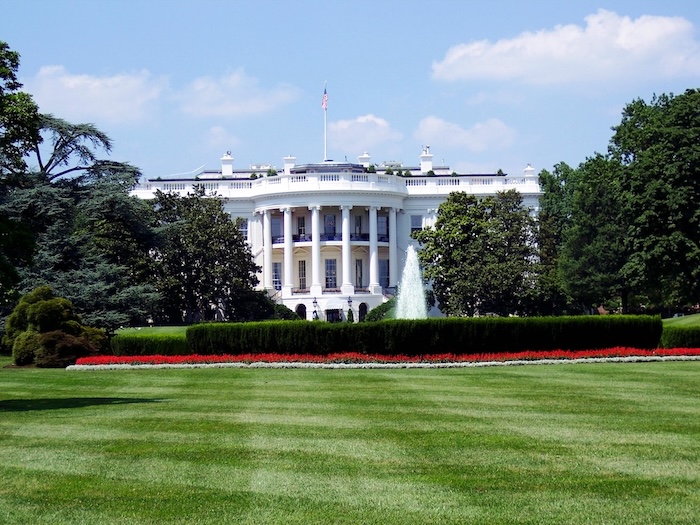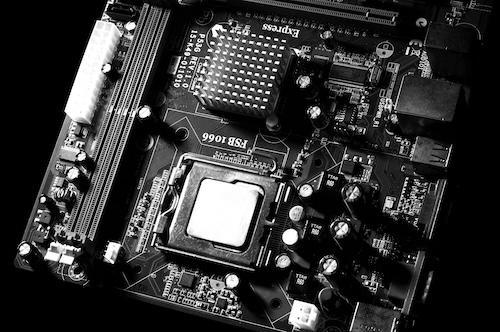
With the first 100 days of the Trump Administration in the books, it’s abundantly clear that trade compliance—whether involving economic sanctions, export controls, or tariffs—will remain a cornerstone of the country’s foreign policy strategy. As such, sanctions compliance will continue to become increasingly critical for companies of all shapes and sizes. Interestingly enough, a friend of mine recently asked if Trump’s deregulation stance would be bad for my business as regulatory counsel. If these first 100 days are any indication, I can confidently say the answer is no, at least with regards to trade compliance (though the FCPA may be a different story).
This post dovetails nicely with my recent quarterly sanctions update. While there will be plenty of overlap, this post intends to provide a deeper dive and more of a forward-looking view in order to help sanctions compliance professionals prepare accordingly. I will break down what I see as the main drivers and motivations underlying the actions over the last 100 days. Note that this Administration’s activities have been polarizing, to say the least, and that is certainly true of its foreign policy strategy. Regardless, this article is intended to be apolitical and written solely to inform compliance decision making.
Closely Allied with Israel
Israel has historically been one of our country’s closest allies and it’s clear that the Trump Administration will continue to aid Israel in handling various conflicts in the region. This includes a heavy use of sanctions.
- Rescission of the West Bank Sanctions Program: One of the (relatively) smaller changes here involves the rescission of the West Bank Sanctions Program. The Biden Administration previously sanctioned certain entities and individuals connected to problematic activities in the West Bank. On January 20, 2025, immediately after taking office, President Trump signed Executive Order (“EO”) 14148, which revoked EO 14115—“Imposing Certain Sanctions on Persons Undermining Peace, Security, and Stability in the West Bank.” As such, pursuant to this new EO, the U.S. Department of Treasury’s Office of Foreign Assets Control (“OFAC”) removed all designations made under EO 14115 from the Specially Designated Nationals and Blocked Persons List (“SDN List”).
- Sanctions on the International Criminal Court (“ICC”): On February 6, 2025, President Trump signed EO 14203—“Imposing Sanctions on the [“ICC”]” targeting ICC Chief Prosecutor Karim Khan for designation and authorizing additional designations for others that may have been involved, whether directly or through material assistance. In this Order, President Trump specifically states that the ICC has “engaged in illegitimate and baseless actions targeting America and our close ally Israel.”
Maximum Pressure on Iran
In addition to the above, the Trump Administration is continuing the “maximum pressure” campaign against Iran that it established in its first term. While this may not be completely tied to the Administration’s close relationship to Israel, it is certainly a considerable factor.
- National Security Memorandum: On February 4, 2025, Trump issued his National Security Presidential Memorandum on Imposing Maximum Pressure on the Government of the Islamic Republic of Iran, Denying Iran All Paths to a Nuclear Weapon, and Countering Iran’s Malign Influence. This memo authorizes the Treasury Secretary to pursue a variety of avenues to impose new sanctions and to implement a robust sanctions enforcement campaign against Iran. It further authorizes the Secretary to review existing guidance and general licenses and either modify or rescind that may provide “Iran or any of its terror proxies any degree of economic or financial relief.” Finally, it seeks to “drive Iran’s export of oil to zero, including exports of Iranian crude to the People’s Republic of China.”
- Designations and Secondary Sanctions: Acting upon the foregoing edicts, OFAC has designated a number of individuals and entities supporting Iran in various forms. These include those with links to Hezbollah and the Houthis, especially the financial networks supporting these groups throughout the Middle East. OFAC made further designations targeting an international network of maritime vessels and facilities supporting Iranian crude shipments to China. Trump has further called for enhanced enforcement of secondary sanctions against those that continue purchasing Iranian oil, proclaiming that those entities “will not be allowed to do business with the United States of America in any way, shape, or form.” Expect to see a lot of activity under this ambit.
Tightening Certain Existing Programs
- Cuba: On his first day in office, President Trump signed an omnibus Executive Order that included the reinstatement of Cuba on the State Sponsors of Terrorism list. Furthermore, he revived his prior National Security Presidential Memorandum 5, which President Biden had rescinded. This move ultimately reimplements the restricted list created during President Trump’s first term, which prohibits certain financial transactions with specific Cuban entities.
- Venezuela: the Trump Administration has removed much of the remaining sanctions relief that the U.S. had previously provided the beleaguered country, as Venezuela has ultimately failed to abide by its commitments towards democratic elections. As part of these efforts, OFAC has amended General License 41 to wind down Chevron’s ongoing operations in the country. OFAC has also rescinded various Specific Licenses, including one granted to Repsol, which altogether provided valuable revenue for the Maduro regime. On top of all this, the Trump Administration has further threatened additional tariffs—let’s call them “secondary tariffs”—on any country continuing to extract, produce, and/or export oil and gas products from Venezuela.
Tariffs as a Foreign Policy tool
While not exactly as harsh as sanctions, it has become abundantly clear that tariffs will be a significant component to Trump’s foreign policy strategy. Thus far, tariffs have been difficult for many companies to navigate, mostly due to the fact that the exact implementation is still not clear. The Trump Administration has threatened various levels of tariffs, though has backed off at times just before they were to come into effect. At this point, companies must remain agile in tracking and complying with the ever-changing nature of these regulations.

focus on Advanced Technology
The Trump Administration continues to maintain a focus on export controls that target advanced technologies such as AI chips, advanced computing capabilities, and other cutting edge tech components. This includes adding dozens of Chinese tech companies to the Bureau of Industry and Security’s (“BIS”) Entity List, along with several from the UAE, South Africa, Iran, Taiwan, and others. This continues a trend that we’ve seen over the last several years as the AI-race heats up amongst world powers. China continues to take major leaps in innovation in a number of high-tech sectors, which threatens U.S. national security interests. I would certainly expect these trends to continue into the foreseeable future.
Expect the Unexpected
I say this a bit tongue-in-cheek, since I do think the Trump Administration is generally pursuing what it campaigned upon, especially with regards to its trade compliance priorities. Nothing I’ve discussed in this article to this point was wholly surprising.
That said, President Trump is certainly much quicker to act than any of his predecessors if the need arises in his eyes, to say the least. A perfect example to this was his initial feud with Colombia over the migrant flights. While those flights were not necessarily related to trade compliance, they ultimately did raise potentially significant sanctions implications at the end of the day. When the Colombian President condemned the flights and refused to accept the passengers, Trump threatened heavy economic sanctions and other restrictions on Colombia and its government leaders. Ultimately, cooler heads prevailed, and those sanctions did not come to fruition. However, it does mean that the specter of surprise sanctions on an unexpected jurisdiction looms overhead for the rest of his term.
Limited Enforcement (So Far)
Through these first 100 days, OFAC has not announced any new sanctions enforcement actions. While this could be due to some of the upheaval related to a new administration still putting its people into place, it’s still somewhat unusual to not see a single new enforcement action during this time frame. This is one trend that I do NOT expect to continue, however. The Trump Administration has already indicated it will prioritize enforcement with regards to both Iran and drug cartel activity. With all the flurry of other trade compliance activity, it’s only a matter of time before the enforcement actions follow.
